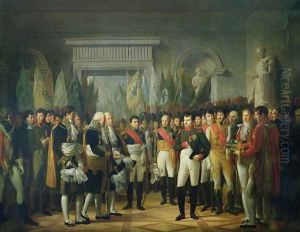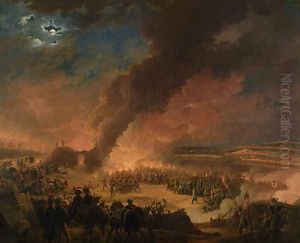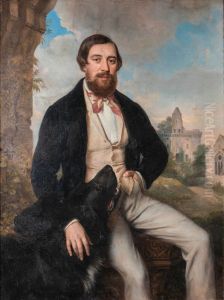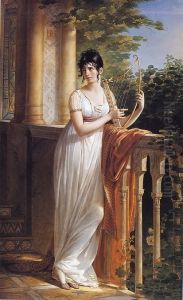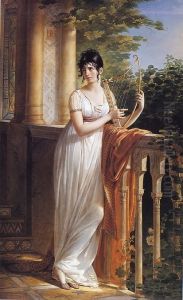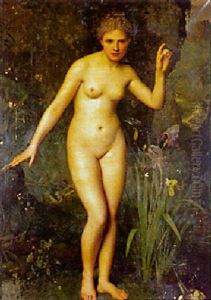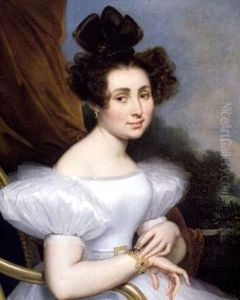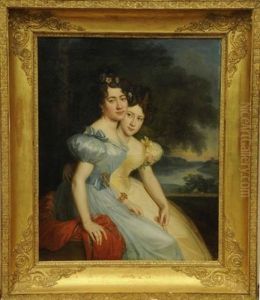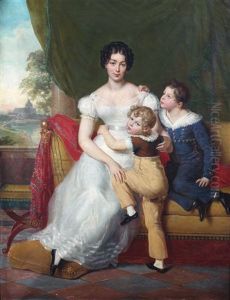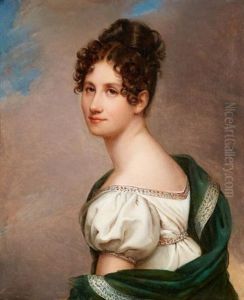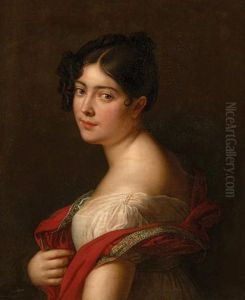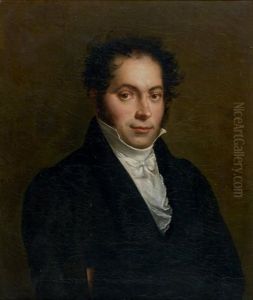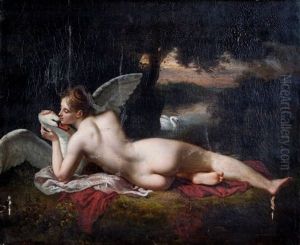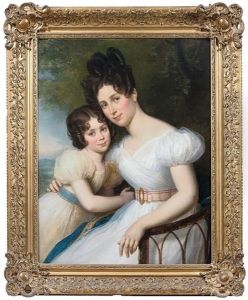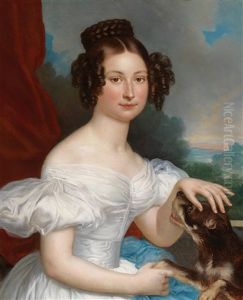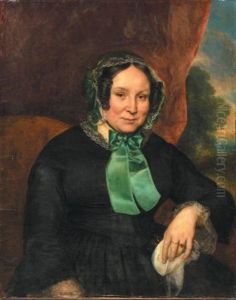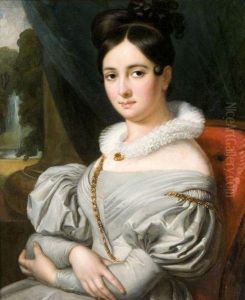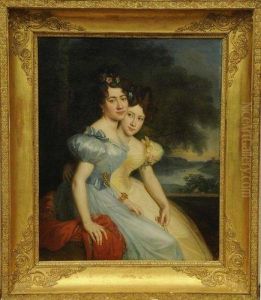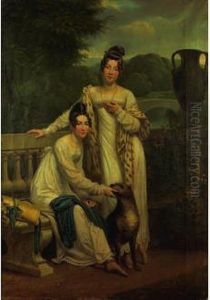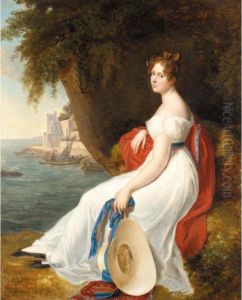Rene Theodore Berthon Paintings
René Théodore Berthon was a French painter born in 1776 in Tours, France. His life spanned a significant period in French history, witnessing the tumultuous years of the French Revolution, the Napoleonic era, and the Restoration period. Berthon was primarily recognized for his contributions to portrait painting, a genre in which he excelled and gained considerable acclaim.
Berthon's artistic journey began under the tutelage of his father, Pierre Berthon, who was also an artist. This early exposure to art within his family environment laid the foundation for his future career. Seeking to refine his skills and establish himself as a painter, Berthon moved to Paris, where he became a student of the renowned Jacques-Louis David. David, a leading figure in Neoclassical art, had a profound influence on Berthon, instilling in him the principles of Neoclassicism, which emphasized clarity, order, and idealized beauty. Under David's mentorship, Berthon honed his technique and developed a keen eye for detail, qualities that would become hallmarks of his work.
Throughout his career, Berthon was deeply involved in the artistic and cultural life of France. He exhibited his works at the Paris Salon, the official art exhibition of the Académie des Beaux-Arts in Paris, receiving positive critical acclaim. His portraits, characterized by their elegance, precision, and psychological insight, captured the essence of his subjects, making him a sought-after portraitist among the French nobility and bourgeoisie. Berthon's ability to convey the personality and inner life of his sitters, combined with his mastery of light and shadow, earned him a distinguished place among his contemporaries.
Despite his success, Berthon's life and career were inevitably affected by the political upheavals of his time. The French Revolution and the Napoleonic Wars brought about significant social and cultural shifts, impacting the art world and its patrons. Yet, Berthon adapted to these changes, navigating the complexities of the era with resilience and flexibility. His work reflects not only the aesthetic ideals of his time but also the changing dynamics of French society.
René Théodore Berthon passed away in 1859, leaving behind a legacy that remains noteworthy in the history of French art. His contributions to portrait painting continue to be appreciated for their technical skill, emotional depth, and historical significance. Berthon's work provides a window into the world of early 19th-century France, capturing the faces and fashions of a bygone era with timeless beauty and precision.
